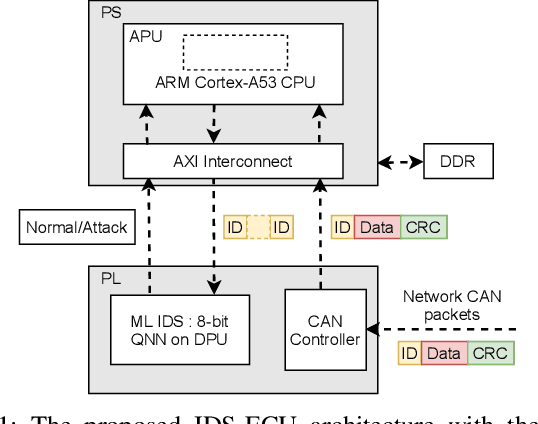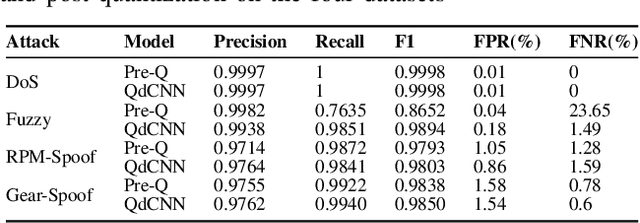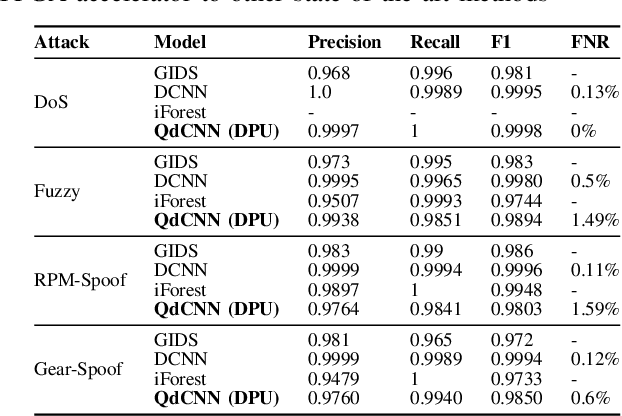Eashan Wadhwa
Deep Learning-based Embedded Intrusion Detection System for Automotive CAN
Jan 19, 2024



Abstract:Rising complexity of in-vehicle electronics is enabling new capabilities like autonomous driving and active safety. However, rising automation also increases risk of security threats which is compounded by lack of in-built security measures in legacy networks like CAN, allowing attackers to observe, tamper and modify information shared over such broadcast networks. Various intrusion detection approaches have been proposed to detect and tackle such threats, with machine learning models proving highly effective. However, deploying machine learning models will require high processing power through high-end processors or GPUs to perform them close to line rate. In this paper, we propose a hybrid FPGA-based ECU approach that can transparently integrate IDS functionality through a dedicated off-the-shelf hardware accelerator that implements a deep-CNN intrusion detection model. Our results show that the proposed approach provides an average accuracy of over 99% across multiple attack datasets with 0.64% false detection rates while consuming 94% less energy and achieving 51.8% reduction in per-message processing latency when compared to IDS implementations on GPUs.
* 5 pages, 1 figure, 8 tables
 Add to Chrome
Add to Chrome Add to Firefox
Add to Firefox Add to Edge
Add to Edge